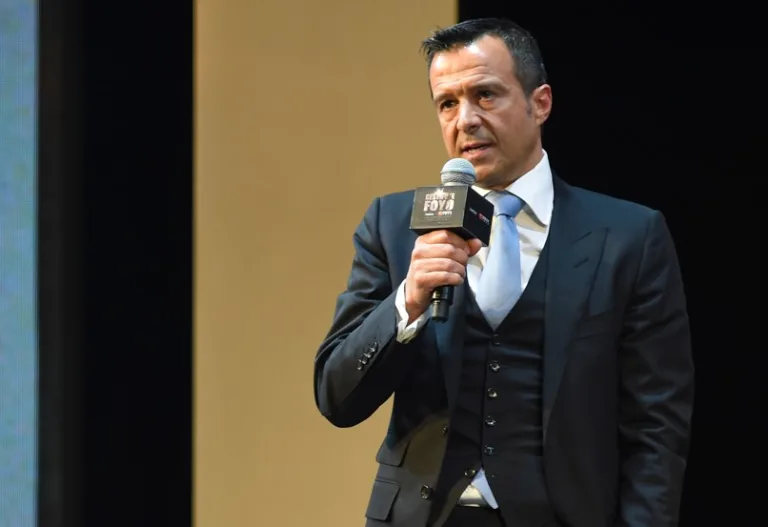Behind every famous and successful international footballer is a football agent as their driving force and ally in the football industry.
Football agents are crucial to footballers, and their demand has risen over the past decade due to talent scouting and football transfers.

This article delves into the role of a football agent, how they are paid, and how they represent their players legally through an agency or individually.
Why do footballers have agents?
A football agent takes care of the player’s off-pitch matters, especially with their club and clients. They mostly work under an agency and represent some of the world’s famous players. Some of the prominent agents in the realm of football are Jorge Mendes, who has represented Jose Mourinho and Cristiano Ronaldo.
Another famous agent is Mino Raiola, who worked Paul Pogba, Zlatan Ibrahimovic, and Romelu Lukaku.
Below is a comprehensive list of the roles of a soccer agent:
1. Contract negotiations and transfer deals
They negotiate contract signings to get the best deal and salary package suitable for the player. When the contract comes to an end, they negotiate for a renewal if necessary.
An agent manages transfers on the player’s behalf and looks for opportunities to build their client’s career based on their professional goals and skills.
The world-breaking football transfer in history was when Neymar Sr., Neymar Jr.’s father and agent, landed him a football transfer to PSG worth €222 million.
3. Talent scouting
Football agents seeking to represent players, attend football matches and spot potential talent to work with.
These agents also create a player profile throwing more light on their abilities and achievements and market them to clubs and other agents.
4. Sponsorship and endorsement deals
Soccer agents look for and negotiate sponsorships and endorsement opportunities on behalf of their clients.
In the absence of agents, players will not get the best of deals and this will negatively impact the player’s earnings. Thus, football agents understand the market and act accordingly to meet their player’s needs.
5. Advising their clients
Football agents give professional advice to their clients. Most agents advise their clients about their football career and everyday life, including finances. This takes the stress of decision making and allows the player to focus on performance on the pitch.
They handle the player’s salary and offer financial advice regarding the car, house, banking, and investments.
What are the requirements for becoming a football agent?
The requirements to become a football agent include the following:
1. Acquire a degree
It is worth noting that a degree is not so important to the work of an agent but it is good to acquire it. Some courses include business management or sports management, which equip the football agent with skills such as leadership and marketing in the football industry. A law degree is also good.
2. Legal certificate to become a football agent
You will need to register at FIFA and obtain a license to practice as a football agent.

3. Relevant experience
A football agent has to gain experience and knowledge to understand the industry and build a professional network.
You can start working at agencies, clubs, or leagues to hone your skills and professionalism.
4. Networking skills
A good football agent should establish relationships while strengthening their professional career. Building networks helps strengthen one’s negotiation and communication skills.
Do footballers pay their agents?
Football agents are either paid a commission of the player’s earnings or they are paid by the buying club. It all depends on the internal agreements.
In some cases, the Premier League player may pay their agent 5% of their gross salary to finalize a transfer. In most cases, the club agent negotiates for the player that the club pays the commission on behalf of the player.
To avoid complications, the agent is paid through the third option, where the buying club will employ the agent for themselves and pay the agent on behalf of the player.

i want to be a football please help me please